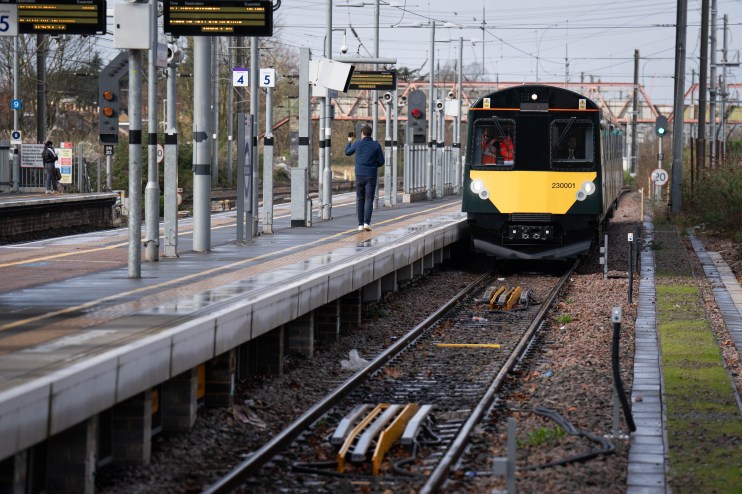
Rail renationalisation will save the taxpayer £2.2bn every year, Labour’s shadow transport secretary has claimed, thanks to “significant efficiencies”.
Louise Haigh promised Labour’s plans to bring Britain’s railways back into public ownership would “save the taxpayer billions of pounds every year” and contribute to all five of her party’s missions for government, on: growth, energy, health, safety and opportunity.
She told journalists at Trainline HQ in central London this morning: “Obviously, we are in a very constrained public spending environment. There is no doubt about that.
“But the reforms we’re setting out today will deliver significant efficiencies and cost savings to the taxpayer.
“The taxpayer can’t afford to continue with the current and broken model, that is throwing good money after bad and wasting very stretched taxpayer money.”
But Haigh, who described herself as the “passenger-in-chief” in Labour’s ‘Getting Britain Moving’ policy document, refused to set out plans to make train fares more affordable.
She said: “I can’t today set out that we will lower fares, not least because they are incredibly complex and regulation needs reform as well.
“But we have said that we will simplify them, that we will make them more accessible, more transparent and more trustworthy for passengers.”
And she added: “Obviously our ambition would be to make fares far more affordable but we really think one of the things that is keeping passengers off the railway at the moment is the fact that they simply don’t trust or understand the way fares are modelled and that is why simplification is our first priority.”
What about Thames?
Haigh was also asked whether renationalisation would extend to the water industry, included the embattled Thames Water.
“We have, as I have set out, and Rachel Reeves has repeatedly set out, ironclad fiscal rules,” she said. “These reforms are within them because we won’t have to pay compensation when the railway operations contracts expire.
“Water is a different settlement because we would have to nationalise the businesses and it could cost the taxpayer billions of pounds, and in the constrained fiscal environment we don’t think that is immediately the right priority.”
Haigh added: “Instead we would set out plans for regulation and for tough legislation, criminal sanctions on water directors who dump sewage in our waters, and regulation to ensure they invest in infrastructure and it is the water companies that pay the price, not consumers.”
The party says it wants to create a more reliable network; simply and make tickets more affordable; make services more efficient and integrated; improve the quality and comfort of trains; increase accessibility and make trains safer.
Chris Hopkins, political research director at polling firm Savanta, said while the “public very much likes the idea of the railways being renationalised” there was “no guarantee that this is a vote winner”.
He added: “Seven in ten say railways should be run by the public sector, versus just 21 per cent who who’d prefer the private sector.
“[But] in isolation, the public like lots of (often contradictory) policy positions. Even if you make very popular positions such as nationalising utilities a cornerstone of your campaign, there are lots of other reasons why the public might not vote for you.”
Rail minister Huw Merriman said: “Labour have confirmed they would push forward with their pointless, unfunded rail nationalisation that will do nothing to improve train reliability or affordability for passengers.
“They don’t have a plan to pay for the bill attached to their rail nationalisation. Without a plan to pay for this, it means one thing: taxes will rise on hard working people.
“Only Rishi Sunak and the Conservatives have a plan to continue investing record amounts in our rail network – building on our over £100bn investment since 2010.”

